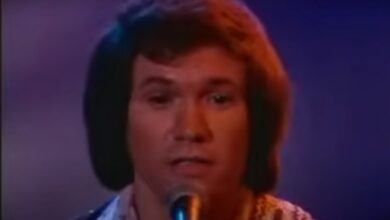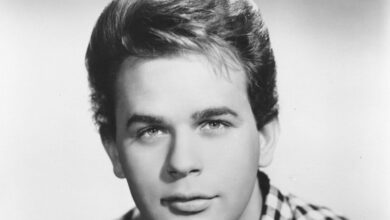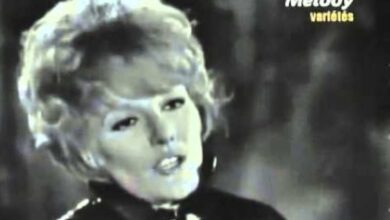The Mindbenders’ “A Groovy Kind of Love” – A British Invasion Ballad That Stood the Test of Time
When “A Groovy Kind of Love” was released in 1965, it became an instant hit, capturing the youthful optimism and romance of the era. Performed by the British beat group The Mindbenders, the song’s gentle melody and heartfelt lyrics resonated deeply with audiences on both sides of the Atlantic. It reached No. 2 on both the UK Singles Chart and the Billboard Hot 100, cementing its status as one of the standout love songs of the British Invasion. Though The Mindbenders would not achieve the long-term success of some of their contemporaries, this song ensured their place in music history and would later find renewed popularity through a celebrated cover version.
The Mindbenders emerged from Manchester’s thriving music scene in the early 1960s as the backing band for Wayne Fontana. Originally known as Wayne Fontana and the Mindbenders, the group found moderate success with a series of singles, including “Game of Love,” which topped the Billboard Hot 100 in 1965. However, Fontana unexpectedly left the group that same year, forcing the remaining members—Eric Stewart, Bob Lang, and Ric Rothwell—to reinvent themselves as a standalone act. It was in this transitional period that they recorded “A Groovy Kind of Love,” proving that they could thrive without their former frontman.
The song itself had an unusual genesis. Written by the American songwriting duo Toni Wine and Carole Bayer Sager, “A Groovy Kind of Love” took its inspiration from an unlikely source—classical music. The melody was based on a piece by 18th-century composer Muzio Clementi, specifically his Sonatina in G Major, Op. 36, No. 5. Wine and Sager, both still teenagers at the time, crafted lyrics that perfectly fit the swinging London aesthetic, using the word “groovy,” which was at the peak of its popularity as a slang term for something cool or stylish. Despite being written by Americans, the song found its way to The Mindbenders, who recorded it with a tender sincerity that gave it universal appeal.
The recording process for “A Groovy Kind of Love” was straightforward but effective. Lead singer and guitarist Eric Stewart delivered a smooth, understated vocal performance, perfectly complementing the gentle instrumentation. The arrangement leaned heavily on a soft, almost hypnotic rhythm, with shimmering guitar chords and subtle keyboard flourishes creating a dreamy atmosphere. Unlike many of the high-energy rock and R&B hits dominating the charts at the time, “A Groovy Kind of Love” embraced a more delicate, melancholic approach, allowing its melody to take center stage.
Upon its release, the song was an immediate success. It climbed the charts rapidly in both the UK and the US, peaking at No. 2 in both countries. Though it never quite reached the No. 1 spot, its impact was undeniable. The song’s warm and wistful tone set it apart from other British Invasion hits, offering something more sentimental amidst the raw energy of bands like The Rolling Stones and The Kinks. It became a popular choice for slow dances and romantic dedications, further embedding itself into the cultural consciousness.
Culturally, “A Groovy Kind of Love” helped redefine the British Invasion’s musical scope. While much of the movement was centered on rock and R&B influences, The Mindbenders’ ballad demonstrated that British groups could excel in crafting soft, romantic pop as well. It also showed the growing influence of American songwriters in shaping the British sound, with the transatlantic exchange of musical ideas becoming more pronounced as the 1960s progressed.
For The Mindbenders, the song represented both a breakthrough and a peak. While they continued to release music, including tracks like “Ashes to Ashes” and “Blessed Are the Lonely,” they struggled to replicate the success of “A Groovy Kind of Love.” By 1968, the group had disbanded, with Eric Stewart later achieving greater fame as a member of 10cc, the art-rock band known for “I’m Not in Love” and “The Things We Do for Love.” Though The Mindbenders’ career was relatively short-lived, their signature hit ensured their legacy endured.
The song’s influence stretched beyond The Mindbenders, inspiring numerous covers over the decades. The most famous reinterpretation came in 1988 when Phil Collins recorded a slowed-down, orchestral version for the film Buster. His rendition stripped the song down even further, emphasizing its melancholic undertones. This version became a worldwide hit, reaching No. 1 in both the US and the UK, proving the song’s timeless appeal. Other artists, including Petula Clark and Sonny & Cher, also recorded versions, further cementing its status as a pop standard.
When looking at the broader context of the song’s release, “A Groovy Kind of Love” arrived during a transformative period in popular music. The mid-1960s saw an explosion of creativity, with artists experimenting with new sounds and production techniques. While some bands were pushing the boundaries of rock, others—like The Mindbenders—were perfecting the art of crafting beautiful, emotionally resonant melodies. The song’s classical influence also foreshadowed later rock compositions that borrowed from classical music, a trend that would be further explored by groups like The Moody Blues and Electric Light Orchestra.
Over the years, “A Groovy Kind of Love” has remained a staple of oldies radio, romantic playlists, and film soundtracks. Whether in its original form or through later reinterpretations, it continues to evoke feelings of nostalgia and tenderness. Its enduring popularity is a testament to the power of a well-crafted melody and a simple, heartfelt lyric.
The song also holds a special place in the evolution of love songs in pop music. Unlike the grand, orchestrated ballads of previous decades, “A Groovy Kind of Love” embraced a more intimate, understated approach that would later influence the soft rock movement of the 1970s. Its gentle delivery and minimalistic arrangement set the stage for future artists looking to capture love’s quiet, introspective moments.
Even decades after its release, “A Groovy Kind of Love” remains one of the most recognizable love songs of the 1960s. It continues to be covered, played, and celebrated, proving that even a fleeting moment in a band’s career can leave an indelible mark on music history.
Looking back, The Mindbenders may not have had the longevity of some of their British Invasion peers, but with “A Groovy Kind of Love”, they delivered a song that transcended time. It’s a track that speaks to the universality of love—simple, sweet, and enduring.



